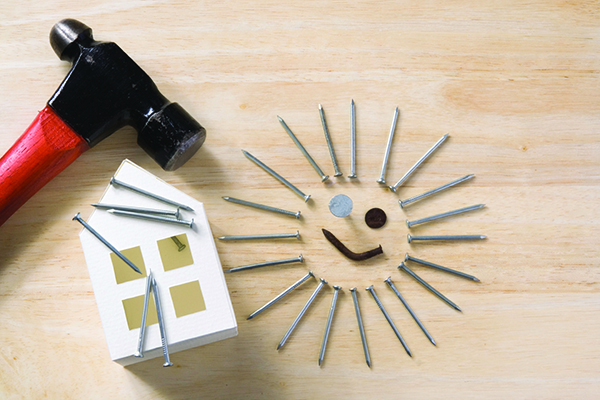Home renovations can add value to a home, but you need to choose your project carefully.
One of the most common reasons people cite when talking about home improvements is that they want to improve the value of their home. While several improvements can greatly increase its value, others usually won’t. Here are some things to think about.
Five things that WILL improve the value of your home:
- Landscaping. Improving the curb appeal of your home will improve its sale price and help it to sell faster. In fact, most landscaping pays back 106 percent or more of what was spent on the project. Landscaping can also be one of the easiest home improvements, since it doesn’t require your family to move out of the home; in addition, it can often be done in sections as budgeting allows.
- Small bathroom remodels. Bathroom remodels that cost less than $5,000 can often return that much or more when it comes time to sell a home. This level of remodeling usually includes simple updates to the tub and sink, but might not involve removal or replacement of these items.
- Additional bedrooms. Building an additional bedroom typically costs between $10,000 and $15,000, and it can return that much or more when it’s time to sell. Hiring an architect ensures that the addition matches the look of the rest of the home.
- Creating an in-law suite. One very valuable add-on is to go a step further and add an in-law suite. These areas usually include a bathroom, small sitting area, and a kitchenette. With so many older Americans wanting to age at home, these suites are becoming very popular among potential buyers. Depending on how your suite is constructed, it could potentially raise the value of your home by $20,000 or more.
- Adding an outdoor room. Screen rooms and enclosed decks are becoming relatively popular, and can increase the value of your home. Focus on creating a space with a lot of natural light.
Five improvements that WON’T help your home’s resale value:
- Converting a garage. All too often, homeowners who are looking for a less expensive way to create more space in their home decide to convert their garage into another living room or bedroom. Unfortunately, eliminating the garage can drop the value of a home and make it extremely difficult to sell. When these renovations are not done professionally, they can be a turn-off to many buyers, who see them as another project that will need to be corrected in the home.
- Large bathroom remodels. Bathroom remodels that cost more than $15,000 are typically not worth the effort. All too often, the money is spent increasing space, which doesn’t add a lot of value if the other rooms in the house are small.
- Large kitchen remodels. While large modern kitchens are in fashion right now, it’s very hard to get back more than 60 percent of what you spend on a kitchen renovation when you sell the home. Often, this is because a lot of the money spent on kitchen renovation goes toward aspects that buyers don’t see or to very personalized, custom elements they do see, but don’t value as much as you do.
- Removing a bathroom. Don’t make the mistake of removing a bathroom to make space for a larger kitchen or living area. While this is often touted as a way to save money on a home renovation, the truth is that it often leaves a home with too few bathrooms for the number of people living there. Build an addition to the house or move to a bigger place before spending your money on this kind of project.
- Partial renovations. One of the worst things a homeowner can do is to try to sell a house with a renovation only partially done. A lot of buyers don’t want the hassle of moving into a home that needs immediate work, forcing a seller to dramatically lower the asking price just to get the home sold. Furthermore, many buyers see a partial renovation as a red flag that something went wrong with the house itself, causing the few buyers who express interest to demand extensive home inspections.
